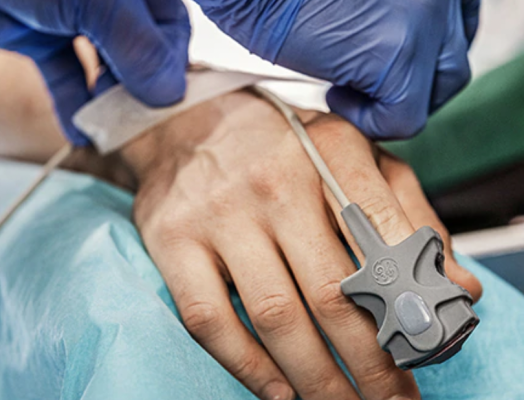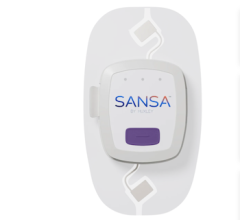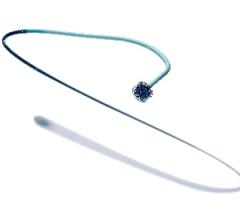
July 28, 2023 — GE HealthCare is recalling malfunctioning TruSignal sensors that may reduce the amount of energy sent to the heart during defibrillation without any notification to the care provider, which could prevent delivery of lifesaving therapy in a critical situation. This issue is most hazardous to hospitalized patients who may need defibrillation for cardiac arrest. Affected sensors may also unintentionally expose patients to electrical currents from other sources or may provide inaccurate measurements of SpO2, which can impact treatment decisions.
The U.S. Food and Drug Administration (FDA) has identified this as a Class I recall, the most serious type of recall. Use of these devices may cause serious injuries, serious health consequences, or death.
The FDA has identified this as a Class I recall, the most serious type of recall. Use of these devices may cause serious injuries or death.
Recalled Product
Product Names:
- TruSignal Adult Pediatric Sensor
- TruSignal AllFit Sensor
- TruSignal Sensitive Skin Sensor
- TruSignal Wrap Sensor
- TruSignal Ear Sensor
- TruSignal Integrated Ear Sensor with GE Connector
- TruSignal Integrated Ear Sensor with Datex Connector
- TruSignal Integrated Ear Sensor with Datex Connector
- TruSignal Integrated Ear Sensor with Ohmeda Connector
Distribution Dates: January 1, 2021 to March 4, 2023
Devices Recalled in the U.S.: 7,559
Date Initiated by Firm: May 19, 2023
Device Use
TruSignal sensors continuously monitor the amount of oxygen found in the blood flowing through the arteries (arterial oxygen saturation or SpO2) and pulse rate through a sensor placed on the skin. The sensors are designed and tested to help ensure patients have enough oxygen in their blood to keep their bodies functioning and to give care providers information to make treatment decisions.
Reason for Recall
GE HealthCare is recalling malfunctioning TruSignal sensors that may reduce the amount of energy sent to the heart during defibrillation without any notification to the care provider, which could prevent delivery of lifesaving therapy in a critical situation. This issue is most hazardous to hospitalized patients who may need defibrillation for cardiac arrest. Affected sensors may also unintentionally expose patients to electrical currents from other sources or may provide inaccurate measurements of SpO2, which can impact treatment decisions.
Use of defective TruSignal SpO2 Sensors may cause serious injuries or death.
GE HealthCare has received four reported injuries and no reported deaths for this issue.
Who May be Affected
- Adults and children whose SpO2 and pulse rate are continuously monitored using TruSignal SpO2 sensors.
- Healthcare providers who use TruSignal SpO2 sensors to monitor adult and pediatric patients.
What to Do
On May 19, 2023 GE HealthCare sent affected customers an Urgent Medical Device Correction notice with the following recommended actions:
- Use an alternate method for SpO2 monitoring, including TruSignal Sensors not impacted or an alternate SpO2 device.
- If alternate methods are not available, use affected TruSignal SpO2 Sensors as long as they have not been saturated with fluids.
- Follow the below instructions if defibrillation is necessary when affected TruSignal SpO2 Sensors are being used:
- Remove the affected TruSignal SpO2 Sensor
- Defibrillate per hospital protocol
- Reattach the affected TruSignal SpO2 Sensor after defibrillation is no longer needed
- Confirm the Adult/Pediatric SpO2 sensors do not have material covering the emitter or detector before using.
- Discard the sensor and use another sensor if any additional material is found to be present.
- Make sure all potential users are made aware of this safety notification and the recommended actions, and retain this notice.
- Complete and return the acknowledgement form attached to the notice to [email protected].
Contact Information
Customers with questions or concerns should contact GE HealthCare Service at 1-800-437-1171 or their local service representative.
Additional Resources:
Medical Device Recall Database entry: TruSignal Adult Pediatric Sensor
Medical Device Recall Database entry: TruSignal AllFit SensorExternal Link Disclaimer
Medical Device Recall Database entry: TruSignal Sensitive Skin Sensor
Medical Device Recall Database entry: TruSignal Wrap Sensor
Medical Device Recall Database entry: TruSignal Ear Sensor
Medical Device Recall Database entry: TruSignal Integrated Ear Sensor with GE Connector
Medical Device Recall Database entry: TruSignal Integrated Ear Sensor with Datex Connector
Medical Device Recall Database entry: TruSignal Integrated Ear Sensor with Datex Connector
Medical Device Recall Database entry: TruSignal Integrated Ear Sensor with Ohmeda Connector
How do I report a problem?
Health care professionals and consumers may report adverse reactions or quality problems they experienced using these devices to MedWatch: The FDA Safety Information and Adverse Event Reporting Program using the online form or call 1-800-332-1088 for more information on how to mail or fax the form.


 January 15, 2026
January 15, 2026 









